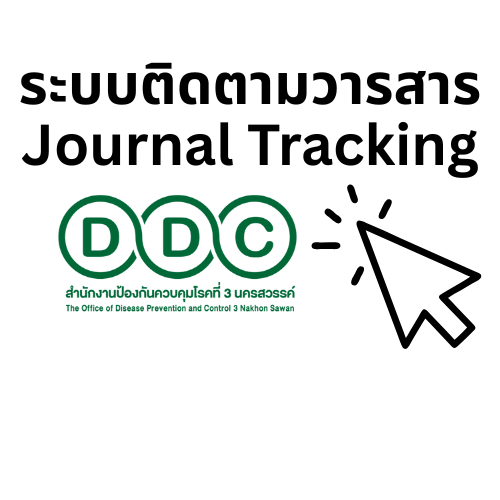Evaluation research of the success of alcohol and cigarette-free school in Phetchabun Province.
Keywords:
evaluation, alcohol and tobacco free schools , new drinkers and new smokersAbstract
This research aimed to 1) evaluate the implementation of alcohol and tobacco-free educational institutions and 2) synthesize lessons learned and develop recommendations. The study employed a systems evaluation approach, utilizing a three-stage stratified sampling method. Six secondary schools were randomly selected, comprising one extra-large, one large, and four medium-sized institutions. Qualitative data were collected through in-depth interviews with six school administrators and six lead teachers, as well as focus group discussions with 60 representatives from school working committees (10 per school) and 70 student leaders (10-12 per school). Quantitative data were gathered from 2,002 students across grades 7-12 using stratified sampling. A questionnaire with a Cronbach's alpha reliability coefficient of 0.76 was employed. Data collection occurred from October 2022 to June 2023. Qualitative data were analyzed using content analysis, while quantitative data were examined using frequency and percentage. The findings revealed key success factors in implementing alcohol and tobacco-free schools: 1) Input factors, including established and announced school policies, teacher-student collaborative leadership teams, sufficient funding, and academic support with stakeholder engagement; 2) Process factors, such as adherence to plans, effective communication for shared understanding, and continuous progress evaluation; and 3) Output and outcome factors, demonstrating enhanced school image, increased parental trust, recognition as a learning center within the district, and a higher proportion of students exhibiting tobacco prevention behaviors (96.3%) compared to alcohol prevention behaviors (61.3%). An important lesson is that the results can be driven according to the targets. This is due to the importance of the management. There is a clear communication policy within the school. Coupled with the participation of the teacher team. Leading students, including parent groups and the community. Creating safety measures for student leaders an important suggestion is that the knowledge of the driving team should be improved. Continuously strengthen student leaders and driving teams within the school, including having real information on risk groups to carry out actions in the target group.
References
National Statistical Office. Survey on Smoking and Drinking Behavior of the Thai Population 2021. Bangkok: National Statistical Office; 2021. (in Thai)
Jiraprorn J, Pornnapa H, Rungrat S. Factors related to smoking initiation among male students in lower secondary schools, Pathum Thani. Journal of Nursing Science Chulalongkorn University 2014; 27:99-109. (in Thai)
Dushyant SG, Manju ST, Ved PP. Alcohol intake and cigarette smoking: Impact of two major lifestyle factors on male fertility. Indian Journal of Pathology and Microbiology 2010; 53:35-40.
Suramed Hashim, Ratana Lertsuvanasiri, Ramida Srirao. Factors influencing alcohol consumption among upper secondary school students in Pathum Thani Province. Thai Journal of Science and Technology 2017; 6:1-10. (in Thai)
Pannee Panthewan. Ecological Models and Health Behavior Change. Army Nursing Journal. 2017;18: 7-15. (in Thai)
National Statistical Office. Survey on Smoking and Drinking Behavior of the Thai Population 2017. Bangkok: National Statistical Office; 2018. (in Thai)
Rasmi Srinont et al. Research on the Transcription of Lessons from the Smoke-Free School Project of the Joint Management Unit (NODE), Wellness Learning Center, Phra Nakhon Si Ayutthaya Province; 2564. (in Thai)
Kannika Redmond. Indicators of 21st Century Leadership Skills for Basic Education School Administrators [dissertation]. Nakhon Pathom: Mahamakut Buddhist University; 2016. (in Thai)
Wichian Chutimasakul. Evaluation Report on the Drug Free and Illicit White School Project 2019. Source: http://www.purcbkk.ac.th/doc/ [14 March 2023] (in Thai).
Samaporn Refugerat. Evaluation of the White School Project, Drug-Free and Illicit Mueang UthaiThani Kindergarten Journal of Juristic Person Management and Local Innovation Year 6, Issue 2 (March-April 2020); 2023. (in Thai)
Passakorn Chokkajitsamphan. Evaluation of the White School Project: Drug and Vice-Free Educational Institution at Suankularb Wittayalai Rangsit School, Khlong Luang District, Pathum Thani Province, Academic Year 2017 [Internet]. Pathum Thani: Suankularb Wittayalai Rangsit School; 2017 [cited 2019 Mar 14]. Available from: http://www.skr.ac.th/main/2017/12/10/white_school/ (in Thai)
Anong Wanson. Lesson Transcription: Success Factors for the Implementation of Model Smoke-FreeSchools in Phayao Province. Academic Journal of the Office of Disease Control and Prevention 9, Nakhon Ratchasima Province. 2022 ; 28 : 33-42. (in Thai)
Ministry of Education. Operational Manual for White School Project: Drug and Vice-Free Educational Institution, Revised Edition B.E. 2559 [Internet]. Bangkok: OTEP; 2017 [cited 2019 Mar 14]. Available from: http://www.purcbkk.ac.th/doc/.(in Thai)
Chakkraphan Phetphum, et al. Development of Surveillance Measures and Restriction of Youth Access to Tobacco Products in 4 Regions of Thailand; 2019. (in Thai)
Chakkraphan Phetphum. Action Research for Solving Public Health Problems in Communities. 1st ed. Phitsanulok: Naresuan University Publishing; 2020. (in Thai)
Bandura A. Self-efficacy: The exercise of control. New York: W.H. Freeman; 1997.
Downloads
Published
How to Cite
Issue
Section
License
Copyright (c) 2025 Journal of Disease and Health Risk DPC.3

This work is licensed under a Creative Commons Attribution-NonCommercial-NoDerivatives 4.0 International License.
Copyright notice
Article published in the Journal of Disease and Health Risk DPC.3 Nakhon Sawan. It is considered a work of academic research and analysis as well as the personal opinion of the author. It is not the opinion of the Office of Disease Prevention and Control 3, Nakhon Sawan. Or the editorial team in any way Authors are responsible for their articles.
Privacy Policy
Name, address and e-mail address specified in the Journal of Disease and Health Risk DPC.3 Nakhon Sawan. It is used for identification purposes of the journal. And will not be used for any other purpose. Or to another person.









